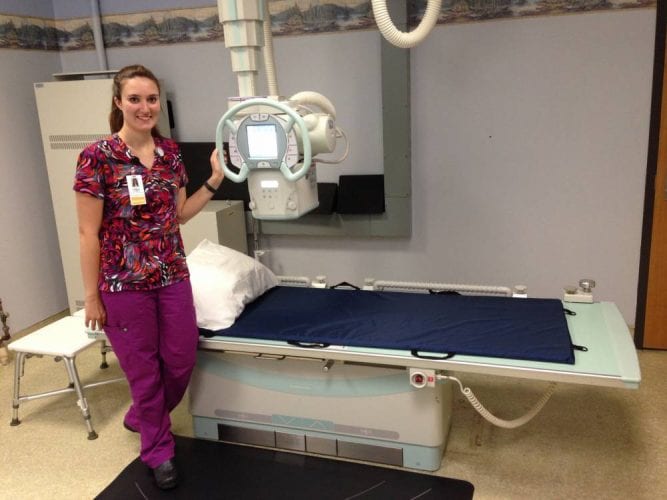
Petersburg Medical Center received a $67,000 state grant to develop Telehealth locally. So what should the model look like for Petersburg? That’s what the medical center is asking the public now. KFSK’s Angela Denning reports:
Compared to any big city hospital, Petersburg Medical Center is small. It’s impossible for PMC to employ specialty doctors like large facilities can. But through technology, quality tests can be conducted locally and then sent out to experts for diagnosing. It’s called Telehealth or what is distance health and it’s been used at PMC for years. The question now is how far does Petersburg want to go with it?
Phil Hofstetter is the CEO of the medical center .
“The technology is here and we could actually build something that is very meaningful,” he said.
He says there are different models out there for Telehealth and they’d like to create one specific for Petersburg.
“Where should we head with it? What do people want to see?” he said. “Do you want to have access to your physician? Do you want to come to the clinic and we could set up a Telehealth for a specialist? You know, those are all different kinds of models.”
PMC already relies on Telehealth for getting many test results from out of town experts. Digital images of X-rays, mammograms, and EKG’s are sent out, read by specialists, and then the results are sent back within hours to days.
Lab and Imaging Director at the medical center, Liz Bacom, says they have a fully digital imaging department now. She says their latest advancement is digital radiography.
“It’s similar to computer radiography,” she said. “It’s actually quicker and the image quality is superior and the amount of radiation that a patient is exposed to in an X-ray is almost half because of the technology.”
Telehealth is more than just imaging though. There is also the opportunity for two-way video appointments with providers. Video systems that are kind of like Skype or Facetime but are way more secure and HIPPA compliant. Bacom says this kind of Telehealth could save local patients money and time.
“Having a choice of whether you want to fly and spend a thousand dollars or more for a follow-up appointment down in Seattle, for example,” Bacom said. “If that could be done here locally with that doctor, that would be great.”
And those kind of doctor visits could be used locally as well. Hofstetter says it could mean more convenient health right here in town.
“You know there are some appointments where they’re just follow up appointments, maybe you don’t necessarily need to be seen in person and you have to wait a long time,” he said. “Maybe those we could just do video consults.”
A potential roadblock to some models of Telehealth could be insurance companies that wouldn’t accept video consultations, for example.
But the public interest to pursue Teleheath is there, according to participants at the last community café that PMC hosted.
The medical center is going ahead with plans to start Tele-Psychiatry at the end of the month.











